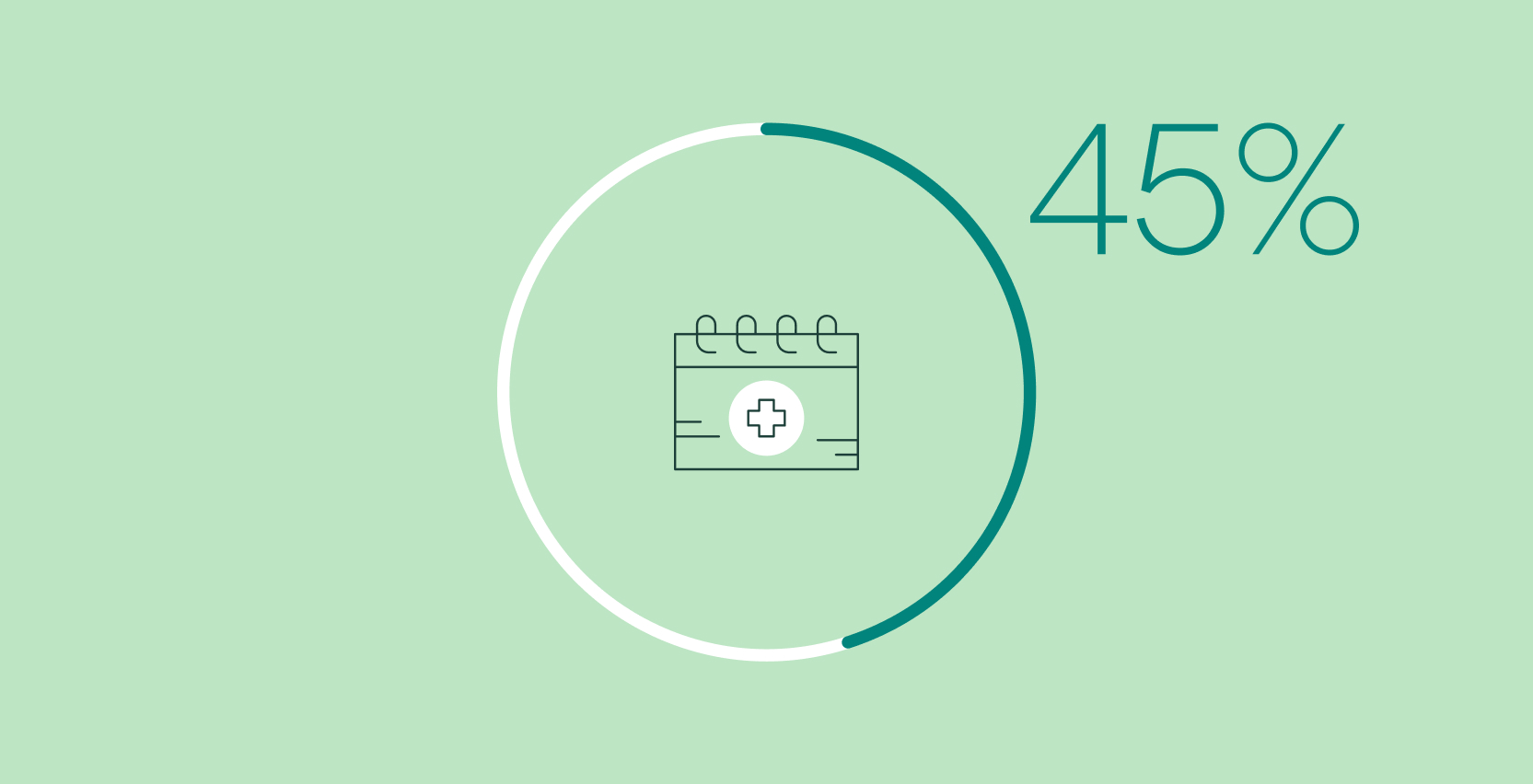Healthcare research round up

Insights on healthcare trends that matter
Did you know only 12% of people trust pharma companies to keep their digital healthcare info secure? Or that 45% of patients now think virtual appointments are quicker than waiting to see a GP in person?
These are just a couple of the interesting insights that have come out of recent healthcare reports. We surveyed three of these reports and pulled out what we think are the most relevant facts and insights for pharma – read on to find out more.
The Boots Digital Healthcare Trends Report 2021
This UK report surveyed 2,000 customers to find out how attitudes towards digital in healthcare have changed.
Key findings include:
- Due to the convenience and accessibility of virtual GP appointments (preferred by 45% of patients), only 30% of respondents said they were very likely to return to face-to-face GP appointments.
- More pharmacists are becoming Independent Prescribers (IPs) – and by 2026, all newly-qualified pharmacists will be able to prescribe.
- 86% of orders via Boots’ Online Doctor service are made via smartphone.
The takeaways:
- Virtual advice is valued by patients. There is a real need for high-quality patient resources to support and advise patients.
- With more pharmacists becoming IPs, new avenues are opening to target a wider audience with prescription drug information. That creates a need for content and resources specifically for pharmacists.
- Digital assets have to be easily accessible, convenient, and optimised for mobile traffic.
NHS Key Statistics 2022
The NHS’s 2022 Key Statistics report is a picture in numbers of the state of the NHS.
Key figures include:
- Waiting lists for hospital treatment rose to a record 6.1 million in December 2021 – a pre-existing issue made worse by the pandemic – while A&E wait times of over four hours have become more common (37.7% in 2022).
- While NHS staff numbers increased during the pandemic (doctors by 9.3% and nurses by 7.6%), NHS vacancies also rose by ~13%.
The takeaways:
- Patients need to be supported with better resources during wait times. Cancer patients have been hit particularly hard by longer wait times, creating a need for materials to support both patients and caretakers/loved ones.
- Healthcare providers (HCPs) can be supported towards meeting treatment demands with better tools and materials to aid diagnoses.
Accenture: The ultimate healthcare experience: what people want (2021)
Accenture’s mammoth report surveyed 11,823 people across 14 countries to find out how the public views healthcare today. The report highlights that people no longer see healthcare as a one-size-fits-all transaction.
Key themes:
- Emotional support matters – respondents indicate that the most important factor for a positive healthcare experience is a medical provider who explains conditions and treatments clearly, who listens to patient needs, and who provides emotional support.
- Healthcare technology offers convenience and accessibility – 23% of respondents used virtual consultations, 20% used mobile/tablet health apps and 19% used wearable tech. Virtual experiences are viewed nearly as positively as in-person consultations.
- Trust in pharma companies fluctuates – when asked how much they trust pharma companies to keep their digital healthcare info secure, 18% of respondents said not at all, 27% not very much, 34% a little, and 12% very much.
The takeaways:
- Emotional support + clear medical information delivered with empathy is a winning formula.
- Pharma companies can increase trust by prioritising data security and patient consent, and by increasing transparency regarding medical research data. Recommendations from trusted medical providers and clearer communication of the personal benefits of treatments can also help.
- Community service partnerships can be grown and refined to raise awareness, improve engagement and develop innovative beyond-the-pill services that truly engage patients.
Research is an important tool in developing strategies that work
Get in touch with our CEO, Ben Myall to find out how our research team can help you better understand your market and your audience.




